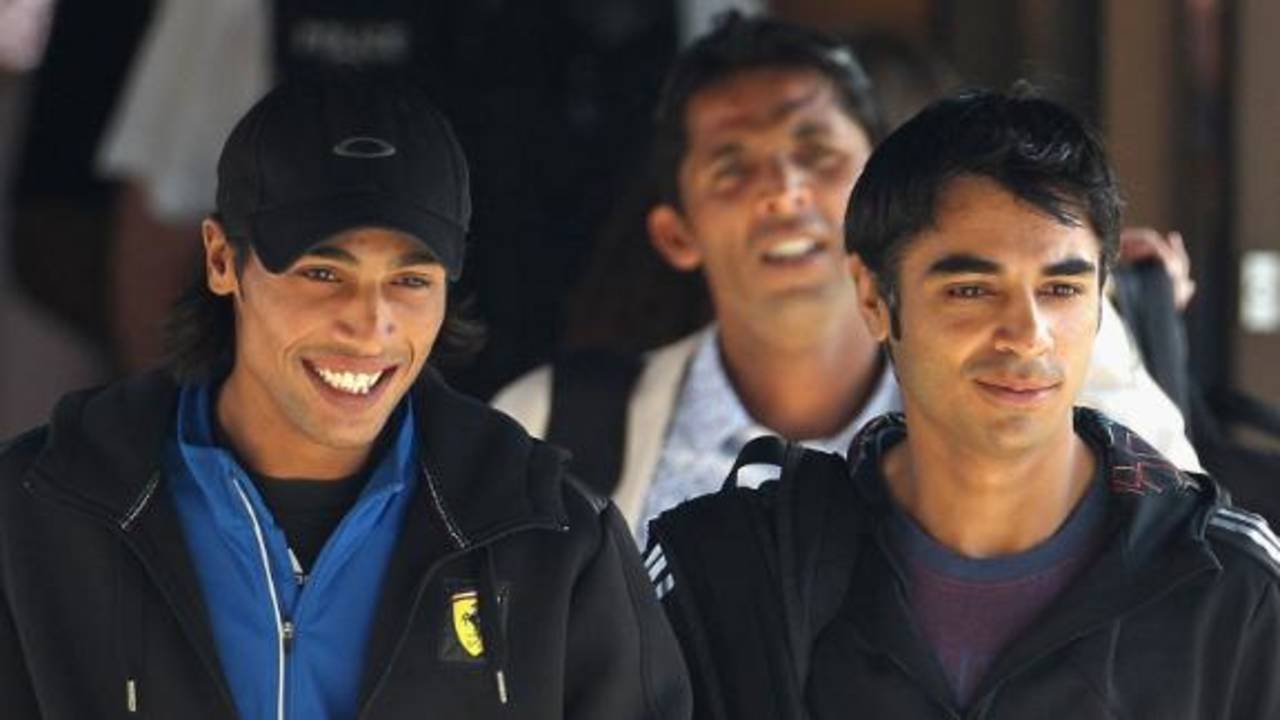The ICC's anti-corruption unit chief, Sir Ronnie Flanagan, has said the reintegration of Mohammad Amir, Salman Butt and Mohammad Asif in international cricket should depend not on their form but on the level of remorse for their roles in spot-fixing during Pakistan's tour of England in 2010.
"They've been punished," Flanagan told the ICC website. "They've met their punishment. It's now a matter, I think, for their home board to decide whether they should ever grace an international cricket team again. That's not just a question of ability, that's a question of their remorse, their realisation of how wrong their behavior was, and their willingness to use that negative experience of theirs in education programme, so there are a whole range of elements in the decision-making process.
"So, I can think one thing personally, but I mustn't ever let what I think personally prevent the professional discharge of my responsibility, and my responsibility was to bring those players to justice, and they were brought to justice."
Amir had pleaded guilty to the charges brought against him by the Crown Prosecution Service, but Butt and Asif did not. They were imprisoned in England for various durations and banned by the ICC for different lengths of time, and became eligible for international selection again only in September 2015. Butt and Asif, however, are undergoing rehabilitation programs and will only be allowed to play the top-level cricket after February 2016, though they are free to play club and grade two cricket in Pakistan.
Apart from the three Pakistan players, the only other cricketer penalised under the ICC code for corruption was Marlon Samuels, who was
banned for two years in 2008. A criticism of the ACU has been the small number of prosecutions it has effected since its formation in 2000, but Flanagan felt that was unfair.
"Well, you know, my background is policing, and since time immemorial, the creation of formalised policing, prevention has always been much more important than detection," he said. "I was very pleased at the recent review we had of the work of the ICC's Anti-Corruption Unit, placed great emphasis on the fact that the main planks of our activity are prevention, disruption, and only then investigation and prosecution, in that order of priority. And I think that order of priority is absolutely right.
"So we shouldn't be judged by the number of prosecutions which have been engaged in. We should be judged by the level of prevention we are able to bring to bear, and I think that's a very positive story."
When asked if corruption in cricket could ever be eradicated, Flanagan said: "Well, to be honest, I would look on that question as similar to the question, will ill health ever be eradicated? Will crime ever be eradicated? And I think the frank answer has to be never totally and absolutely eradicated. But that doesn't stop us working the very hardest that we can, making the greatest effort that we can to eradicate the game as far as is humanly possible to do.
"So, if you ask me an honest question, which you have, I'll give you the honest answer that we will never totally, utterly and absolutely eradicate corruption from the game, but we can make the game a very difficult environment for those who would seek to bring corruption to bear."
Flanagan said that the corruptors in cricket were part of "organised criminal gangs" and that a collaborative effort had been put in place to curb it during the 2015 World Cup. He said the ACU would continue to form partnerships with investigating agencies.
"The Australian federal police, because these are organised criminals, were very willing to engage in an information sharing Memoranda of Understanding with us, as were New Zealand police, as were the individual state police organisations throughout Australia. We have similar MOUs about to be signed with the National Crime Agency in the UK, with investigative authorities in India and South Africa, and the fact that we work in close collaboration with those investigative authorities is evident that they indeed recognise that these corruptors are members of organised criminal gangs right across the world and must be attacked globally in that joint effort and through those joint partnerships that I've described."
